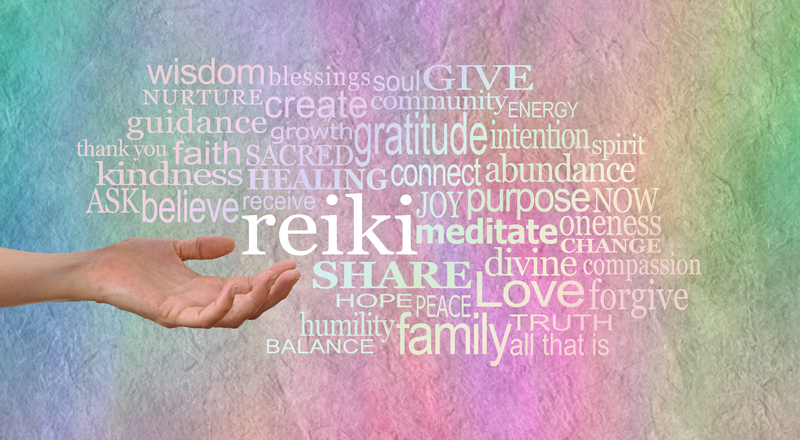Ever feel like your emotions are running you in circles? Want to find more fulfillment in life, but don’t know where to begin? Then you’ve come to the right place!
In this 30-day guide, we’ll show how spiritual self-mastery can help tame even the most wayward of emotions. From developing greater self-awareness and learning ways for reframing experiences, these lessons will have you on your way towards embracing a sense of inner peace and contentment – no matter what life throws your way.
Let’s get started – it only takes 30 days to achieve emotional freedom!

How emotions work and preparation for transforming them
When it comes to emotions, the first step is understanding how they work. Emotions are complex and incredibly powerful forces that can sometimes control our behavior, dictate our actions, and shape the way we interact with others. They are made up of both physical and psychological components, and it’s important to understand them in order to effectively manage them.
Physically, emotions involve changes in facial expressions, body language, heart rate, skin temperature, blood pressure, breathing rate and more. These physical reactions can be temporary or long-term depending on the emotion being experienced. Psychologically, emotions involve thoughts and beliefs about a situation or event which can lead to different attitudes or behaviors. For example, if someone experiences joy when they are praised by a friend they may feel motivated to continue their good work while fear when faced with an intimidating obstacle may cause them to avoid the challenge altogether.
Regardless of what triggers them or how they manifest physically or psychologically, understanding your own emotions is key for transforming them into something positive. This involves recognizing what you are feeling as well as where those feelings come from so that you can better manage your reactions. Once you know what emotion is affecting you in any given situation it becomes easier to choose how you want to respond instead of just reacting instinctively. A helpful tool for this process is mindfulness meditation which helps individuals become aware of their emotional states and gain more control over them in order to make more conscious decisions about how they want to act in various situations.
It’s also important to be patient with yourself throughout this process since managing emotions takes time and practice before any real transformation can occur. It’s also important to remember that there is no one-size-fits-all approach when it comes to dealing with emotions due to the uniqueness of each individual’s experience; however with commitment and dedication anyone can learn how to effectively handle their own emotional states so that they remain productive instead of getting overwhelmed by intense feelings such as anger or sadness.
Spiritual Self-Mastery depends on taming your emotions
Spiritual self-mastery is the process of learning to control and manage our emotions. Although it may sound like a lofty goal, spiritual self-mastery can be an incredibly powerful tool for making life more manageable and enjoyable. The basic concept behind spiritual self-mastery is that we have the ability to control our reactions to external events and influences, instead of letting them run our lives. When we are able to stay present and mindful of our inner state, we can respond calmly and purposefully rather than reacting impulsively or out of fear. This allows us to take charge of difficult situations, navigate challenging emotions, and create healthier patterns in our lives.
An important part of spiritual self-mastery is understanding how our emotions work. All too often, when faced with difficult or uncomfortable feelings, we react by trying to suppress them or distract ourselves from them. But this approach only serves to make matters worse in the long run. By learning how to accept these feelings as part of being human, we can begin to appreciate the helpful information they offer us about ourselves and the world around us. This will help us become better at responding constructively in emotionally charged situations rather than allowing our knee-jerk reactions to take over.
In addition, spiritual self-mastery involves developing an awareness of how certain thoughts contribute to our emotional states. Recognizing that many of these thoughts are simply products of old habits or outdated beliefs helps us become less reactive when faced with uncomfortable feelings or situations. Through mindfulness practice, we can learn how to observe these thoughts without attaching judgement or giving them power over us. We can also discover new ways of thinking that will help us break free from unhealthy patterns and create more balance in our lives.
Overall, spiritual self-mastery is about cultivating a sense of inner peace and acceptance so that we can approach life’s challenges with grace and resilience instead of fear or avoidance. It is a journey that requires patience, dedication and willingness—but one which promises tremendous rewards if pursued wholeheartedly!
Day 1: Developing Awareness of Your Emotions & Behaviors
Awareness of our emotions and behaviors is one of the most important tools we can utilize in order to better navigate our lives. Developing this awareness requires a great deal of practice and patience, but it can make a huge difference in how we feel about ourselves and the world around us. Being aware of our emotional states allows us to observe them objectively, giving us insight into how they are influencing our thoughts, feelings, and behaviors. This knowledge can help us to manage difficult emotions more effectively and make healthier choices when faced with challenging situations. Furthermore, paying attention to our own behaviors can reveal patterns that may be contributing to unwanted or destructive outcomes; by recognizing these patterns, we can begin to make changes that will lead to positive results.
Although becoming aware of our emotional states and behaviors is not always easy, there are several steps that can help get started on this journey. Keeping a journal is an excellent way to document your emotional state throughout the day; take notice of how you felt during certain events or situations and consider what could have contributed to these feelings. Additionally, practice self-care activities such as meditation or yoga helps create intentional space for further reflection and increased understanding of ourselves and the world around us. Finally, open communication with trusted friends or family members gives us an opportunity to share experiences, gain support from those closest to us, and receive feedback that may provide additional insight into our inner workings.
By taking time each day to check in with yourself through journaling or mindful activities, you will be able to increase your self-awareness which will ultimately lead to greater mental health benefits such as improved decision making skills and healthy coping strategies. While it takes effort and dedication to become more attuned with your emotions and behavior patterns, the rewards are worth it!

Day 2: Understanding the Root Causes of Emotional Reactivity
When it comes to understanding the root causes of emotional reactivity, it is important to understand the role that thoughts and beliefs play in our emotions. Our thoughts are often the most immediate triggers for our emotions, as our thoughts can be based on memories, assumptions, or experiences that cause us to react emotionally in a certain way. For example, someone might have a thought like “I’m not good enough” which may lead them to feel helpless or inadequate.
In addition to our own thoughts and beliefs, our environment can also have an impact on our emotions. When we experience things such as criticism or judgment from others or when we are exposed to stressful situations or stimuli, these external influences can activate emotional reactions within us. Additionally, patterns of behavior that were established in childhood can shape how we respond emotionally in adulthood. For instance, if we were constantly criticized by parents during childhood it may lead us to expect negative outcomes and anticipate criticism from others later on in life.
It is also important to recognize that emotional reactivity is deeply rooted in biology and genetics. As humans, we are biologically wired with an intrinsic fight-or-flight response system designed to protect us from harm; this means that when confronted with danger (real or perceived), we will naturally experience heightened levels of anxiety or fear as a result of this built-in alert system designed for self-preservation.
Finally, understanding the various factors that play into one’s ability to process emotions can help guide individuals towards more effective strategies for managing their own emotional reactivity. This includes being aware of potential triggers for one’s emotions and being mindful of how one’s thoughts may contribute to their feelings and reactions. Becoming more conscious of one’s own emotional processes can be beneficial in helping individuals gain control over their emotional responses and preventing them from spiraling out of control.
Days 3-15: Reframing Experiences to Find Fulfillment
The concept of reframing experiences to find fulfillment is an interesting one, and it can be done in a variety of ways. The first step to finding fulfillment through reframing experiences is to identify what your current outlook on the experience is. Are you viewing the situation with a negative lens? Or are you approaching it with a positive outlook? Once you have identified your current outlook, determine how you would prefer to view the situation in order to bring yourself greater joy and satisfaction.
For example, if you’re feeling stuck in a job that doesn’t seem to be taking you anywhere, try shifting your focus from the lack of progress and potential to the new skills and experiences that you are gaining while working in this job. You might also find it helpful to imagine yourself as an observer rather than living in the moment. This will help you gain perspective so that you can see things from other angles.
Another way of reframing experiences is by recognizing them for their value – not just for what they do or don’t do for us but for what we can learn from them. Consider any challenges or obstacles as opportunities for growth and development; this will shift your thinking so that instead of being stuck or stuck-in-a-rut feeling, you will be more likely to think about how this experience could benefit and enrich your life as a whole. Finally, look at every single event as having its own special purpose in helping shape your future; this way you can start focusing on the “what” instead of the “why” or “how”.
By utilizing these strategies, it’s possible to reframe our experiences and begin creating a path towards fulfillment. Although life may not always go according to plan, approaching situations with an open mind allows us to discover joys and possibilities we may have never even dreamed of before!

Days 16-29: Practicing Mindfulness and Compassion for Yourself
In the next 14 days, you will be practicing mindfulness and compassion for yourself. Mindfulness is the practice of being aware of your present moment experiences and accepting them without judgment. It involves taking time to notice your thoughts, feelings, bodily sensations, and environment. Compassion is the practice of understanding and having empathy for one’s self in times of difficulty or suffering. It involves recognizing that we are all human beings with a common struggle and treating yourself with kindness, instead of criticizing or judging yourself harshly.
When practicing mindfulness and compassion for yourself, it is important to remember that it is not about fixing or solving any issues right away; rather it is about developing a greater sense of understanding towards yourself. Acknowledge what you are feeling and give yourself space to process your emotions without getting caught up in the story behind them. Take slow deep breaths to relax your body and mind before slowly bringing awareness back to the present moment. Let go of any expectations you have set for yourself or assumptions about how things should be going; instead take each moment as it comes without trying to rush through it or linger too long on a certain thought or feeling.
It can also be helpful to remember that even if you feel like you have failed at something, you still deserve kindness from yourself. Instead of focusing solely on results and outcomes, focus on your effort and progress over time instead – this will help you stay motivated even when faced with challenges or setbacks along the way. Lastly, practice self-compassion by speaking kindly to yourself; imagine what words you would say if caring for someone else in a similar situation, then shift those same words towards yourself as well.
Day 30: Wrapping Up – Achieving Your Inner Freedom
The essence of achieving inner freedom is learning to be comfortable in the present moment and free from negative emotions. It means being able to accept yourself for who you are, despite any fears or anxieties that may be holding you back. It means being able to let go of trying to control the future and instead living in the present with an open heart and mind. Inner freedom is about embracing life as it comes, believing in yourself and your potential, and making decisions based on what will lead you down a path of peace, joy and abundance.
Inner freedom starts by understanding that you have the power to make decisions based on what brings you joy. This can mean setting boundaries with people or situations that no longer serve you well, or recognizing when something isn’t in alignment with your internal truth. You must also learn to believe in yourself and trust your own judgement without letting other people’s opinions or expectations dictate how you should live your life.
Finally, true inner freedom comes from developing a deep appreciation for all aspects of life – both good and bad – while also having faith that everything happens for a reason beyond our comprehension. Learning to surrender our need for control over the outcome allows us to experience more profound moments of peace and contentment within ourselves. When we do this, we no longer feel restricted by fear or held back by doubt; instead we are able to fully immerse ourselves into each moment as it arises, truly free from worry and stress.
The path to spiritual self-mastery takes patience and commitment – but it is so worth it. We can all benefit from more conscious, intentional living and emotional resilience. By completing this journey, we have moved closer towards understanding ourselves better and our emotional patterns. We become empowered by recognizing the source of our triggers in order to better control how we respond. And most importantly, we learn how to use our awareness and newly acquired tools to achieve inner freedom and fulfillment. The journey of spiritual self-Mastery is a long and winding road – but remember you are never alone on it. Your deepest desires are within reach as long as you continue walking forward with courage and resilience. If I can be of any assistance on this profound process please do not hesitate to reach out to me for resources, advice or guidance.
How Will I Respond?
Sometimes we all wonder if we are doing the right thing, making the right decision, or responding appropriately to some situation.
This information has been shared before, but I think it bears repeating.
Here are a few questions to ask yourself, if you are ever in doubt:
Is this response free from fear?
Is it the most positive way to handle the situation?
Does this response involve the highest good for all concerned?
Am I adding to the light of the world by doing this?
I bless that you are







